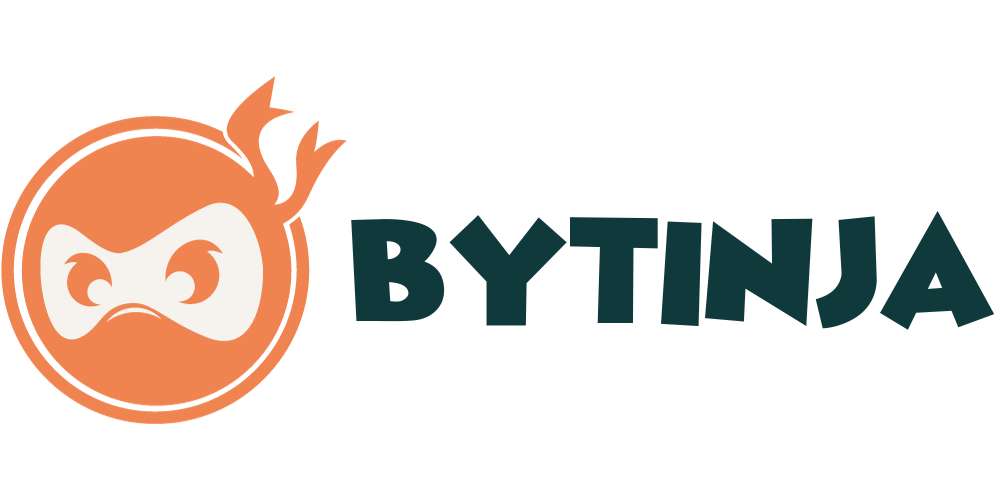In today’s digital landscape, website security is a critical concern for businesses of all sizes. With cyberattacks becoming increasingly sophisticated and frequent, it is essential to prioritize website security to protect sensitive data and maintain a strong business reputation.
Building a secure website requires a systematic approach that involves implementing various best practices and tools to prevent potential threats. This article will provide essential tips and best practices for building a secure website, including:
Choosing A Secure Web Hosting Provider
Implementing SSL Encryption
Keeping Website Software Up-To-Date
Using Strong Passwords And Two-Factor Authentication
Monitoring For Suspicious Activity
Limiting Access To Sensitive Information
Educating Your Team On Website Security Best Practices
By following these guidelines, businesses can minimize the risk of a security breach and ensure the safety of their website and data.

Understanding The Importance Of Website Security
The significance of website security cannot be overstated, as it is a crucial aspect for small business owners and bloggers to prioritize. Poor website security can lead to the loss of sensitive data and damage to a business’s reputation. It is essential to take security measures to ensure a secure website and prevent potential security risks.
One of the essential security measures for a website is to install an SSL certificate. An SSL certificate provides encrypted data transmission between the server and the client. It is especially important for websites that accept payments, ask for login details or transfer files. SSL boosts SEO and proves that data sent to the site visitors is using an encrypted channel.
Other security measures for building a secure website include keeping website software up to date, using a web application firewall to protect against attacks, using secure passwords and two-factor authentication, and regularly scheduling backups to restore the website in case of an attack or system failure. It is important to prioritize security and work with a reliable hosting provider to reduce the risk of data breaches.

Choosing A Secure Web Hosting Provider
Surprisingly, some web hosting providers still prioritize profits over security, leaving their customers vulnerable to cyber-attacks and data breaches. As a website owner, it is crucial to choose a hosting provider that values and prioritizes website security.
A secure site starts with a secure hosting provider that offers features such as SSL certificates, regular software updates, and two-factor authentication.
SSL certificates are essential for website security, as they encrypt data transmitted between the website server and the client. A reputable hosting provider should offer SSL certificates as a standard feature. SSL certificates not only protect sensitive information such as login details and payment information, but they also boost SEO and increase consumer trust by proving that the website is using an encrypted channel.
Regular software updates are also necessary for website security, as outdated software can pose a significant security risk. A reliable hosting provider should offer regular software updates to address security vulnerabilities promptly.
Additionally, two-factor authentication is an essential security feature that adds an extra layer of protection to the website. A good hosting provider should offer two-factor authentication as an option for website owners to implement.
By prioritizing website security, website owners can ensure that their website and their customers’ information remain safe from cyber-attacks and data breaches.

Implementing SSL Encryption
Implementing SSL encryption is a critical step in safeguarding sensitive data and building trust with website visitors. SSL, which stands for Secure Sockets Layer, encrypts data transmitted between the web server and the client, making it difficult for hackers to intercept and decipher the data.
Websites and online tools that handle sensitive information, such as passwords, credit card numbers, and personal data, must use SSL encryption to protect their users from security risks. To implement SSL encryption, website owners must obtain a Secure Sockets Layer certificate, which is issued by a trusted third-party provider. This certificate verifies that the website is authentic and that the data transmitted is encrypted and secure.
SSL certificates can be obtained through web hosting providers or SSL certificate vendors. Once the certificate is obtained, it must be installed on the web host server and configured to work with the website. In addition to providing security for sensitive data, SSL encryption also has other benefits for website owners.
SSL boosts website security, making it more difficult for hackers to exploit vulnerabilities and compromise the website. It also helps to establish trust with website visitors, who are more likely to engage with a website that is secure and trustworthy. By implementing SSL encryption, website owners can make their website secure and protect their users from security risks.

Keeping Your Website Software Updated
Maintaining up-to-date website software is critical for protecting your business and customers from potential security breaches, ensuring smooth functionality, and building trust with website visitors.
Outdated software is a major security risk for websites as it can leave vulnerabilities that hackers can exploit. By keeping software up to date, businesses can ensure that these vulnerabilities are addressed promptly and the risk of a breach is minimized.
Updating web applications and plugins is also important for website security. These software updates typically often include security patches that address vulnerabilities that have been discovered in the software. Failing to update these applications and plugins can leave a website vulnerable to attacks that exploit these vulnerabilities. By regularly updating these components, businesses can ensure that their website is as secure as possible.
In addition to protecting against security breaches, keeping website software up to date can also improve website performance and functionality. Updates often include bug fixes and improvements that can help websites run more smoothly.
Ensuring that software is up to date can also help businesses stay ahead of competitors by offering the latest features and functionality to website visitors.
Overall, keeping software up to date should be a top priority for any business looking to build a secure and trustworthy website.

Using Strong Passwords And Two-Factor Authentication
Protecting your website with robust passwords and two-factor authentication is like building a fortress around your digital assets, ensuring that only authorized individuals can gain access and providing peace of mind for both businesses and website visitors.
Strong passwords are essential for safeguarding login credentials and preventing unauthorized access. Passwords should be at least 12 characters long, with a mix of upper and lowercase letters, numbers, and symbols. Avoid using commonly known information, such as birthdates or pet names, and consider using a password manager to generate and store complex passwords.
Two-factor authentication (2FA) adds an extra layer of security by requiring an additional verification step beyond a password. This can include a code sent via text message, a biometric scan, or a security key. This ensures that even if a password is compromised, a hacker would still need access to the second authentication factor to gain entry. Implementing 2FA can significantly reduce the risk of unauthorized access, and it is recommended to enable this feature for all website users, including administrators and customers.
In addition to using strong passwords and 2FA, regularly backing up your website is also crucial for ensuring website security. In the event of a security breach or system failure, having a backup plugin in place can help restore your website to a previous state. It is recommended to schedule regular backups, ideally daily or weekly, and store them in a secure off-site location.
By implementing these password practices, 2FA, and backup processes, you can significantly reduce the risk of unauthorized access, data breaches, and other security threats to keep your website up.

Regularly Backing Up Your Website Data
Continuing with the theme of website security, the next essential tip is to regularly back up your website data. Unfortunately, despite taking all necessary precautions, website security breaches can still occur. In such cases, having a recent backup of your website data can be the difference between a minor inconvenience and a catastrophic loss.
To ensure the safety of your website data, it is important to schedule regular backups. This can be done manually or through automated backup services offered by hosting plans or third-party providers. Hosting plans may include backup software as part of their package, while third-party services like CodeGuard and Sucuri offer automated backups for a fee. Additionally, WordPress plugins like UpdraftPlus and VaultPress can manage backups for WordPress websites.
It’s important to note that regular backups not only provide protection against data breaches but also allow for easy recovery in case of system failures or accidental deletion of data. By regularly backing up your website data, you can ensure that your website can be easily restored in case of any unforeseen incidents.
Additionally, website scanners can be used to identify vulnerabilities and security improvements that can be made to further enhance your site’s security.

Monitoring Your Website For Suspicious Activity
Monitoring your website for suspicious activity is crucial in detecting potential security breaches and preventing further damage to your online presence, instilling a sense of confidence and trust in your audience. Security threats are constantly evolving, and hackers are always looking for ways to infiltrate vulnerable websites. By monitoring your website regularly, you can identify and respond to any anomalies or suspicious activity before it escalates into a full-blown security breach.
Here are three critical aspects of monitoring your website for security threats:
Use a web application firewall (WAF) to protect your website from malicious traffic. A WAF is a security measure that filters out potentially harmful traffic before it reaches your website, preventing hacking attempts and other security breaches.
Set up alerts to notify you of any suspicious activity on your website. This can include unusual login attempts, changes to your website’s files or configuration, or any other activity that seems out of the ordinary. By receiving alerts in real time, you can quickly respond to any potential security breaches and prevent further damage.
Regularly scan your website for vulnerabilities and potential security breaches. Website scanners can identify security holes in your website’s code, configuration, and plugins, allowing you to address them before they can be exploited by hackers. By taking a proactive approach to website security, you can minimize the risk of a security breach and protect your business and customers from harm.

Limiting Access To Sensitive Information
Limiting access to sensitive information is a crucial step in safeguarding your website against potential security breaches, as the saying goes, ‘prevention is better than cure.’ Limiting access is particularly important for small businesses that store personal data, such as customer information, financial records, and login credentials. A data breach can have serious consequences, including loss of trust, financial penalties, and legal action. Therefore, it is vital to limit access to sensitive information to prevent unauthorized access and cyber-attacks.
One way to limit access to sensitive information is to change default settings and passwords. Default settings are often easy to guess, making it easier for cybercriminals to gain access to your website. Similarly, simple passwords can be easily hacked, leaving your website vulnerable to cyber attacks. Therefore, it is important to use a password manager to generate strong passwords and update them regularly. Additionally, use two-factor authentication to add an extra layer of security.
Human error is another common cause of security breaches. Often, employees unintentionally share sensitive information, either through email or social media. Therefore, it is important to educate employees on best practices for data sharing and handling. To limit access to sensitive information, create different levels of access for employees. For example, only authorized personnel should be allowed to access financial records and customer information.
A secure sockets layer (SSL) certificate can help limit access to sensitive information by encrypting data transmitted between the server and the client. This prevents hackers from intercepting and reading sensitive information. Additionally, SSL certificates improve website credibility, as they indicate that the website is secure and trustworthy. Therefore, it is important to install an SSL certificate to limit access to sensitive information and protect against cyber attacks.

Educating Your Team On Website Security Best Practices
Improving website security is imperative for safeguarding sensitive information and preventing potential cyber-attacks, which is why educating your team on website security measures is crucial. As a business owner, it is important to understand that website security issues can arise from any team member’s actions, whether intentional or unintentional. It is therefore important to educate your team on best practices to ensure that everyone is on the same page.
To effectively educate your team on website security, consider the following measures:
Schedule regular training sessions to educate your team on the latest website security best practices.
Encourage your team to use strong passwords and implement two-factor authentication.
Ensure that your team members are aware of the importance of keeping website software up-to-date to address any security vulnerabilities.
Discuss the consequences of a security breach and the impact it can have on the business’s reputation and financials.
Provide your team with resources such as website scanners and anti-malware software to help them identify and mitigate potential threats.
Educating your team on website security is an essential step towards building a secure website. By taking the time to educate your team on the latest security measures, you can reduce the risks of a security breach and safeguard sensitive information.
Remember to schedule regular training sessions, encourage the use of strong passwords, and provide your team with the necessary resources to help identify and mitigate potential threats. Additionally, ensure that your team members are aware of the importance of keeping website software up-to-date to address any security vulnerabilities.

Responding To Security Breaches And Incidents
In the event of a security breach or incident, it is important to respond quickly and effectively to minimize damage and prevent further harm.
The first step is to assess the situation and identify the source and extent of the breach. This can be done by reviewing server logs, analyzing website traffic, and using a website scanner to identify vulnerabilities and security issues.
Once the source of the breach has been identified, the affected areas of the website should be isolated and secured to prevent further access by the attacker.
If sensitive information has been compromised, it is important to notify users and customers as soon as possible. This can be done through email notifications, website announcements, or social media updates.
Users should be advised to change their passwords and monitor their accounts for any suspicious activity. In addition, user access to the website’s data should be reviewed and restricted as necessary to prevent further damage.
To prevent future breaches, it is important to implement security measures such as SQL injection and DDoS protection, and to regularly update website software and security plugins.
It is also crucial to work with a reliable hosting provider that prioritizes website security. By taking these steps, small business owners and bloggers can reduce the risk of a hacked website and protect their sensitive data and business reputation.
Conclusion
In conclusion, website security is a critical aspect of any online business or blog. The rise of cybercrime and hacking means that website owners must take proactive measures to protect sensitive data and maintain a strong business reputation.
By choosing a reliable web hosting provider, implementing SSL encryption, keeping software up-to-date, using strong passwords and two-factor authentication, monitoring website activities, limiting access to sensitive data, educating team members on security best practices, and responding to security breaches, website owners can significantly reduce the risk of cyber-attacks and protect their business interests.
Building a secure website requires a systematic approach that involves identifying potential vulnerabilities, implementing preventive measures, and responding effectively to security incidents. The consequences of a security breach can be severe, including financial losses, loss of reputation, and legal liabilities.
Therefore, website owners must prioritize website security as a business-critical issue and invest in the necessary resources and tools to ensure their website is secure. In today’s digital age, where cybercrime is rampant, the cost of neglecting website security can be catastrophic. Therefore, website owners must take proactive measures to safeguard their online assets.
Frequently Asked Questions
What Are Some Common Types Of Website Security Threats That Small Businesses Should Be Aware Of?
Small businesses should be aware of various types of website security threats that can compromise their website and sensitive data. One common threat is SQL injection, where an attacker injects malicious code into a website’s database, allowing them to access and manipulate sensitive information.
Another threat is cross-site scripting, where an attacker injects malicious code into a website’s pages, allowing them to steal user data or redirect them to a malicious site. Other threats include malware, phishing, and DDoS attacks, which can cause website downtime and financial losses.
Protecting against these threats requires implementing best practices such as keeping software up-to-date, using secure passwords, and regularly backing up website data.
How Can Website Owners Protect Themselves From DDoS Attacks And Other Types Of Malicious Traffic?
Website owners can protect their business websites and themselves from DDoS attacks and other types of malicious traffic by implementing a web application firewall (WAF), regularly updating security software, and choosing a reliable hosting provider.
A WAF can help prevent malicious traffic from accessing a website by filtering out suspicious requests.
Regularly updating security software can help address vulnerabilities and protect against new threats.
Choosing a reliable hosting provider can reduce the risk of a website being compromised.
Additionally, implementing strong passwords and two-factor authentication, using SSL encryption, and monitoring website activity for suspicious behaviour can further enhance website security.
It is important for website owners to stay up-to-date on the latest security threats and best practices in order to effectively protect their websites.
What Are Some Best Practices For Managing Website Add-Ons And Plugins To Ensure Maximum Security?
Best practices for managing website add-ons and plugins to ensure maximum security include:
Regularly Updating Them To The Latest Version
Removing Any Unused Or Unnecessary Add-Ons And Plugins
Only Downloading From Reputable Sources
It is also important to:
Monitor For Any Vulnerabilities Or Security Issues And Address Them Promptly
Set Up Different Access Levels To Limit The Potential Damage Of A Security Breach
Regularly Test The Website And Conduct Security Audits To Identify Any Potential Risks And Vulnerabilities
Implementing measures such as firewalls and SSL encryption can further enhance website security. It is crucial for website owners to prioritize security and stay vigilant in managing their website add-ons and plugins to prevent potential security threats.
How Can Website Owners Ensure That Their Passwords Are Strong And Secure?
Website owners can ensure that their passwords are strong and secure by implementing several best practices.
First, they should use long and complex passwords, consisting of upper and lowercase letters, numbers, and symbols, and avoid using easily guessable information such as birthdates or names.
Password managers can also be used to generate strong passwords and store them securely.
Two-factor authentication should be enabled to add an extra layer of security.
Regularly changing passwords is also recommended, especially after a security breach or suspected unauthorized access.
Lastly, website owners should educate themselves and their team on password security best practices to reduce the risk of compromised passwords.
What Steps Can Website Owners Take To Prepare For And Respond To Security Breaches And Incidents?
Ironically, despite the prevalence of security breaches and incidents, many website owners fail to adequately prepare for and respond to them.
To mitigate the risks of such events, website owners should have a comprehensive incident response plan in place that includes regular backups, secure passwords, and two-factor authentication. They should also work with a reliable hosting provider that offers web application firewalls and DDoS protection.
In the event of a breach, website owners should immediately isolate the affected system, investigate the cause of the breach, and notify any affected parties. They should also take steps to prevent future incidents, such as updating software and implementing additional security measures.
By taking these steps, website owners can minimize the impact of security breaches and incidents on their business and reputation.



